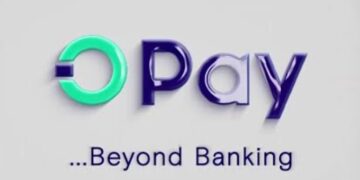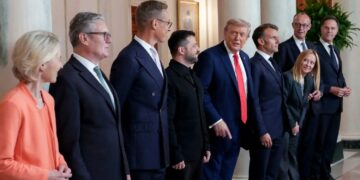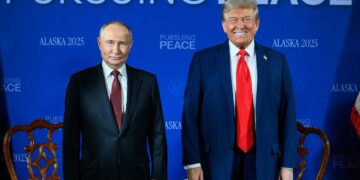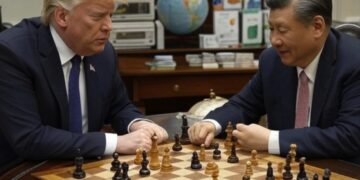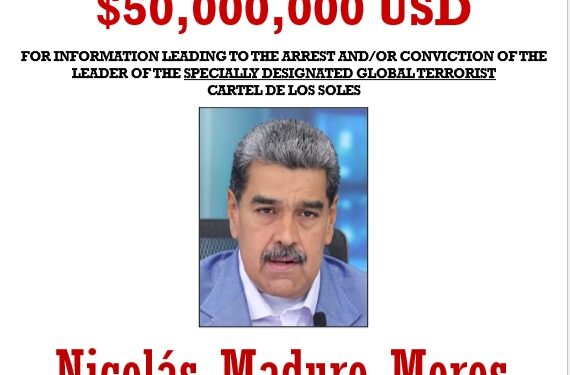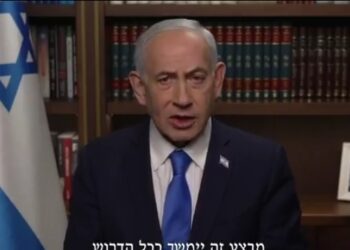In a decisive escalation of efforts to combat international narcotics trafficking, the U.S. Department of State, in collaboration with the Department of Justice, has announced a significant increase in the reward offer under the Narcotics Rewards Program (NRP). The bounty, now set at up to $50 million, targets information leading to the arrest and/or conviction of Nicolás Maduro, the controversial Venezuelan leader accused of violating U.S. narcotics laws. This unprecedented move underscores the United States’ unwavering commitment to dismantling transnational criminal networks and holding high-profile figures accountable for their alleged roles in the global drug trade.
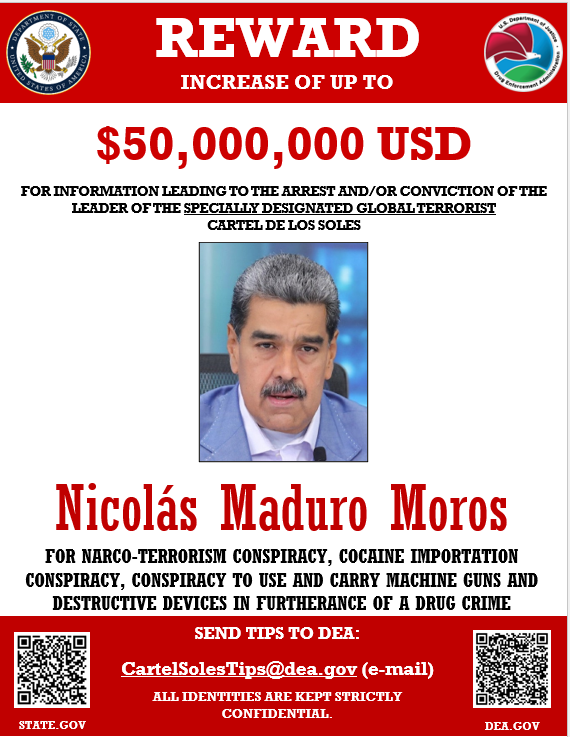
The Narcotics Rewards Program, established to incentivize cooperation in disrupting major drug trafficking operations, has long been a cornerstone of U.S. law enforcement strategy. By elevating the reward for Maduro, the U.S. government signals a strategic shift, intensifying pressure on a figure long associated with allegations of corruption, human rights abuses, and narco-trafficking. The increased bounty not only reflects the severity of the charges but also serves as a clarion call to global stakeholders—governments, law enforcement agencies, and private citizens—to collaborate in bringing justice to one of the most high-profile targets in recent history.
Maduro’s alleged involvement in narcotics trafficking has been a focal point of U.S. investigations, with accusations that he has facilitated the movement of illicit drugs through Venezuela, a key transit hub for narcotics destined for North America and Europe. The U.S. alleges that Maduro, alongside key associates, has leveraged his political power to enable these operations, undermining regional stability and fueling the global drug crisis. The $50 million reward is a testament to the U.S. government’s determination to disrupt these networks and hold accountable those who exploit their authority for criminal gain.
For stakeholders, this development carries profound implications. The increased reward amplifies the risks for Maduro and his inner circle, potentially destabilizing their operations and encouraging defections or cooperation from within. It also sends a powerful message to other narco-traffickers: no one is beyond the reach of justice. For businesses and investors in the region, this move may signal heightened U.S. scrutiny of financial flows and trade routes linked to Venezuela, urging greater due diligence to avoid entanglement with illicit activities.
Moreover, this announcement highlights the broader role of the NRP in fostering international cooperation. By offering substantial financial incentives, the program has historically yielded critical intelligence, leading to the capture of notorious figures in the drug trade. The focus on Maduro could galvanize similar outcomes, encouraging informants to come forward with actionable information. For global stakeholders, this is a moment to align with the U.S. in promoting security, transparency, and the rule of law.
As the international community watches closely, the $50 million reward marks a pivotal chapter in the fight against narcotics trafficking. It is a bold call to action, urging stakeholders across sectors to support efforts to dismantle criminal enterprises and restore stability in regions plagued by their influence. The path to justice is rarely straightforward, but with this historic bounty, the U.S. is doubling down on its resolve to see Maduro face the consequences of his alleged crimes.


